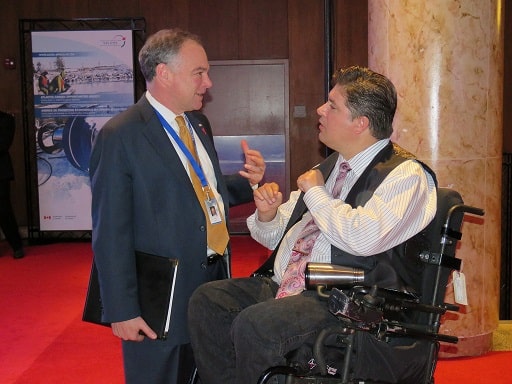Medical marijuana cutbacks for vets won’t hurt Licensed Producers: M Partners


Legislation that will see the federal government cut back the amount of medical marijuana it will cover for veterans won’t have a big affect on the businesses of Licensed Producers, says M Partners analyst Mason Brown.
This morning, at the Canadian Military and Veteran Health Research Forum in Vancouver, Veterans Affairs Minister Kent Hehr said the government would dramatically scale back the quantity of medical marijuana that veterans will be reimbursed for.
“I was shocked to learn that the former government began reimbursing veterans for cannabis with no policy in place,” said Hehr. “Now is the time to change that. Since the first veteran was reimbursed on compassionate grounds in 2007, the department has been reimbursing veterans for cannabis in increasing numbers and at an increasing cost. We went from one veteran to over 3,000 in eight years, many of whom are accessing up to 10 grams per day.”
The changes come after an internal audit revealed that Veterans Affairs paid more than $20-million for cannabis in 2015, up from just $5-million in 2014. 2016 costs are expected to be $25-million.
Under the new rules, veterans will be reimbursed for three grams a day, not ten. Brown says that while this is lower than the five gram-per-day limit he was expecting, and the price limit of $8.50 a gram is also lower than the $9.00 he expected, he sees no material impact to Licensed Producers. The analyst says that while this news is a negative, even the LPs with the most exposure to the veterans market don’t derive a very high percentage of their overall sales from it.
“We note Aphria Inc. and OrganiGram Holdings Inc. are the main public LPs with sizeable veteran exposure,” notes Brown. “Aphria’s exposure comes through its acquisition of Cannway Pharmaceuticals, which provided APH with an established veteran patient-base, and APH notes Canadian Forces veterans (as well as PTSD and depression sufferers) consume as much as 5gpd-10gpd (APH Investor Deck). OrganiGram’s veteran exposure stems from its acquisition strategy, which targeted the lucrative veteran market, and OGI’s patient base in the last quarter averaged slightly over 2gpd, double peers’ patient consumption rates. While the limits were stricter than expected, we don’t see the changes having a material impact on LPs in the long term, unless their long term strategy was medical-only and targeting veterans. First, we note that veterans make up a very small segment of the medical market. In 2015 there were only 1,320 veterans that were part of the program (here) and the ACMPR ended the year with 39,668 patients. Second, we’ve forecast declining medical flower and oil selling prices for both APH and OGI over the long term and into our valuation period of CY2020 to reflect increasing competition and lower production costs.”
Brown currently has a “Buy” rating and a one-year price target of $6.10 on Aphria and a “Buy” rating and a one-year target of $3.70 on OrganiGram Holdings.
Nick Waddell
Founder of Cantech Letter
Cantech Letter founder and editor Nick Waddell has lived in five Canadian provinces and is proud of his country's often overlooked contributions to the world of science and technology. Waddell takes a regular shift on the Canadian media circuit, making appearances on CTV, CBC and BNN, and contributing to publications such as Canadian Business and Business Insider.
